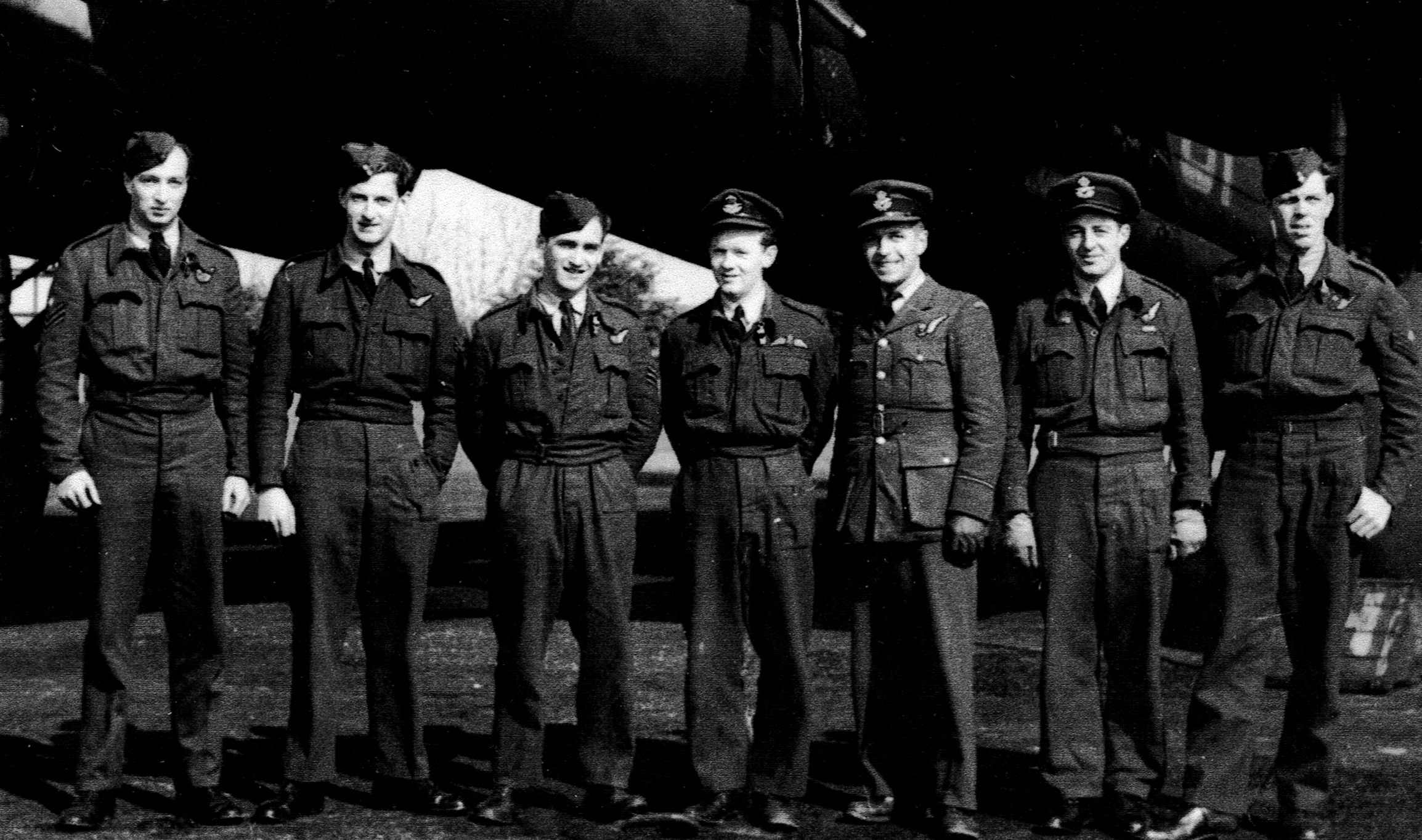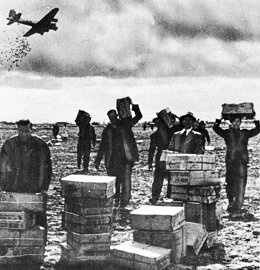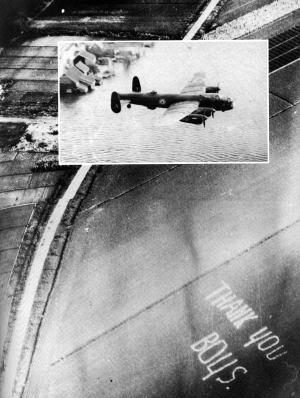
He didn’t have to do it. Still in an RCAF uniform and duty-bound to King and Country in April 1945, nevertheless Joe English stepped up. He and his entire Lancaster crew had completed the requisite 30 operations, a full tour, over occupied Europe. They all had done their bit in the war, but Joe and his entire crew volunteered for one more flight.

“The Germans say they’ll permit bombers to fly in low over the big Dutch cities – Amsterdam, Rotterdam, Utrecht, the Hague,” their RAF commanders told them. “People are starving there. They need us to drop tons of food.”
“As far as I was concerned,” Joe said, “it was about improving people’s lives.”
Seventy-five years ago last spring, in the last days of the Second World War in Europe, Canadian, British and American crews flew “Operation Manna” flights over those cities in the Netherlands. The Germans said they’d allow the bombers to pass through safe corridors of air. A few crews were still shot down.
Nevertheless, those volunteer bomber crews delivered over 10,000 tons of food in the last 10 days of the war. They probably saved three million Dutch civilians’ lives. I thought about Joe English and a tradition of helping the hungry as I spoke to Patti Maloney, co-chair of the Loaves and Fishes Food Bank, in town this week.
“When the pandemic hit in the spring,” she said, “we lost some volunteers out of fear for their health. But we’ve replenished, about 50 people helping now.”
Maloney arrived in town about 20 years ago, when she began a teaching position at Uxbridge Public School. She instructed English at the French immersion school and special education. And while she still supply-teaches and helps her husband with a home-operated business, Wednesday afternoons she joins volunteers in the basement at St. Andrew’s Chalmers Presbyterian Church helping to dispense food.
It sounds pretty straight-forward, but there’s more of the Joe-English-kind-of-gift from volunteers than meets the eye. The Loaves and Fishes crew does a lot of heavy-lifting to bring frozen and cold foods from the lower floor of the church. Volunteers do thermometer checks of clients, dispense hand sanitizer and clean surfaces constantly. And in order to abide by physical distancing standards, only 10 volunteers can serve clients at the church at a time.
“It’s a humbling experience for both volunteers and clients,” she said. “And our users are – with few exceptions – grateful, gracious and thankful.”
Over its 31 years’ service, the food bank has traditionally supported seniors in need, citizens with disabilities and people feeding large families. But COVID-19 shook the traditional model to its roots, last spring. Suddenly with families reconfiguring, Maloney said, not only were moms and dads at home, so were their children, and so were their children.
A summer 2020 study of Toronto’s Daily Bread Food Bank redefining “food insecurity” revealed that cuts to social assistance, precarious employment, lack of affordable housing and the pandemic have driven monthly visits in Toronto from 83,000 in 2019 to nearly 114,000 in 2020.
“Typically, we serve 80 to 100 in a month,” Maloney said. “But that now represents feeding more than 250 people. … We’re seeing people who’ve said never in their lives would they have thought they’d use a food bank as new clients.”
When I asked about the food bank’s greatest needs, at the top of the list is more space. While extremely grateful for the church’s generosity, the food bank could better serve if it had fewer stairs, maybe as much as 2,000 or 2,400 square feet, and access to parking in the downtown area.
Of course, the food bank could use cash; Maloney said each week volunteers purchase fresh food, baked goods, meats and dry goods for food bank users.
“They’re not glamourous,” she added, “but we’re always short of canned vegetables and canned fruit.”
On its second or third food drop over the Netherlands in April 1945, Joe English’s crew worried about German anti-aircraft gunners who might not abide by neutral corridors of air for the low-flying bombers loaded with food. But flying at just a few hundred feet off the ground in daylight (unlike their bombing missions at 20,000 feet at night) they spotted something unbelievable on the ground.

The Dutch women had taken their finest linens – curtains, table cloths and skirts – and spelled out their gratitude in huge letters on the ground. “Thank you, Boys!” the message said.
“The food packs we delivered,” English said, “were the best kind of bombs we ever dropped.”
Stepping up during a war might seem too dire a comparison with offering a food or financial donation to the Loaves and Fishes Food Bank in 2020. I think not. In this war versus the pandemic, hunger is more than collateral damage.
“Each Wednesday,” Patti Maloney admitted, “it’s a mixed feeling, seeing devastation among our clients, but it’s inspiring to see them treated with respect and dignity.”